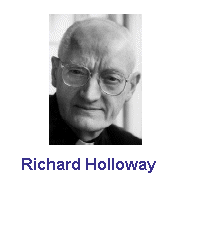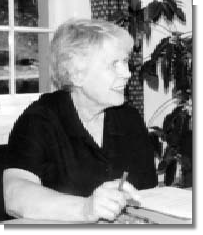
| The New Patrons of NSF (Scotland) are Baroness Linklater of Butterstone and the former Bishop of Edinburgh Richard Holloway.Baroness LinklaterBorn near Dunkeld, Veronica Linklater is married with three children and now lives in Edinburgh. She has a long-standing involvement with the prison service, which began when she was in London. She founded the Butler Trust in 1983 and became an inner London Justice of the Peace two years later. In 1987, she moved back to Scotland and amongst many other commitments, she became a member of the Children's Panel for Edinburgh South and President of the Society of Friends of Dunkeld Cathedral. She founded and became Executive Chairman of the New School, Butterstone for educationally fragile children, and also became a Trustee of the Esmee Fairburn Charitable Trust, a major grant making Trust for which she chairs the Social Development Sector. Patron of the Sutherland Trust and Director of the Maggie Keswick Jencks Cancer Caring Centres Trust, she was created a Life Peer in 1997, taking the title of the Lady Baroness Linklater of Butterstone. As a carer, she is committed to the work of NSF (Scotland) and is delighted to have been appointed a Patron of the Fellowship. Richard Holloway After forty years in the uniformed branch of Christianity, I am enjoying the freedom to be myself and do the things I want to. I had been Bishop of Edinburgh since 1986 and Primus of the Scottish Episcopal Church since 1992 when I retired at Halloween last year. Alongside the day job in the ordained ministry, I always managed to find time for writing and voluntary work. My most recent writing has been on ethical issues and my last book, Godless Morality created a bit of a stushie when it came out and led to calls for my resignation. My next book will be out in September, but I am now beyond the reach of the thought police. One reason why I was honoured to become Patron of NSF (Scotland) is related to these controversies. Prejudice exists because people rarely examine their attitudes to complex matters, preferring to sound off in the conventional way whenever they are invited to stretch their thinking. Unexamined attitudes lie behind much of the stigma that attaches to people with serious mental health problems. This is bad enough when it comes from individuals, but when it comes from newspapers it is much worse and can do terrible damage. The way schizophrenia gets sensationalised in the press contributes to the enormous burdens that already press on people with serious mental health problems, their families and carers. I am glad to be part of an organisation that fights against that sort of dangerous and sloppy thinking; and I am proud of the way the Fellowship is committed to the empowerment of valuable people who happen to have serious mental health problems. Richard Holloway
| |
|
| ||

| The President of NSF(S) is Dr Janette Gardner OBEJanette is a Chemistry graduate and has worked in research and teaching. She was Chairman of NSF(S) for 10 years. The priorities of the Fellowship's wide communities of interest - familiy members, service users, and staff - remained to the fore during that significant period of growth and development. Janette became President ofNSF(S) in July 1999 | |
|
| ||
The Vice President of NSF(S) is Dr Hugh BegbieHugh's career was firstly in physics research and later in medicine and medical education. He was Senior Lecturer in Physiology in the University of Edinburgh and later Associate Dean of the Faculty of Medicine. His consultancies abroad include work for the World Health Organisation. In the Fellowship, he made a notable contribution as co-ordinator of the Edinburgh Group for many years, as Vice-Chairman of NSF(Scotland) from 1984-91 and subsequently as Vice-President. | ||
|
|
|
|